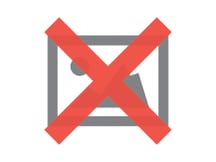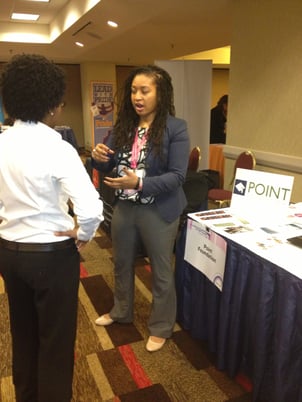The National Gay and Lesbian Task Force held its 25th annual National Conference on LGBTQ Equality: Creating Change, in Atlanta from January 25-29. As an attendee of several academic and professional conferences over the past years, I’d like to consider myself an “experienced” conferencer (that’s right I just made up that word). So I have the conference format down pat. You drag yourself out of bed at the crack of dawn to make it to the conference breakfast that starts at 7 am - what an eager attendee! Then off to your first lecture where you sit and listen to a presenter that does more “lecturing” than actively engaging and interacting with the participants.

Deepak Bhargava delivers opening keynote speech.
Now on to the keynote speaker of day, who is totally unavailable afterwards or goes around with a look on their face that essentially says, “please not another over-ecstatic person wanting to tell me how great my work is.” By 4 pm you’re trying to decide between attending the last session, heading back to your room, or the bar! So even though I heard Creating Change (CC) was unique in comparison to other conferences, I still found it quite odd that every person I talked to lit up and said, “oh everyone should experience Creating Change at least once in their life!”
Oh how right they are! As a first time conference attendee, CC challenged all of my "pre-conceived" conference notions. I jumped right into CC as a co-presenter with a fabulous team of racial justice activist, trainers, and facilitators for the kick-off event “The Racial Justice Institute.” Lead by my Point mentor, Dr. Jamie Washington, this one day institute promoted a safe and open space for attendees to participate in interactive learning sessions that placed a critical lens on the intersections of gender, sexuality, class, ability, and race within the LGBTQ movement. It was an amazing experience and really rewarding to see that attendees were engaged and buzzing with ideas, motivation, and excitement leaving the sessions. Even more impressive, each of the presenters (including myself), made it a point to stick around and chat with anyone who was interested!

Racial Justice Institute
To my pleasant surprise, this was the tone for each of the workshops I attended. Not only was I acquiring knowledge and skills through interactive activities that were engaging, challenging, and rewarding-but I was also building really awesome social relationships with my fellow attendees. I learned about acknowledging my “masculine privilege” and how that plays out in my actions as a woman whose gender expression is fluid between feminine and masculine. I didn’t even know I had that -- and I wasn’t the only one! The diversity of workshop topics and presenters was also amazing: ranging from LGBT Elder Institutes, straight spouse ally sessions, immigrant justice & queer liberation, to building progressive Muslim communities, National Black Justice Coalition, or sex positive transex. Did I mention the array of social activities that ended each night? Drag queens, polyamory speed dating, and Frenchie Davis in concert, oh my! 
I can’t forget my amazing time tabling for Point Foundation. I had the opportunity to meet people who were avid Point supporters, current applicants, and those learning about Point for the first time. On numerous occasions I heard, “Wait…this kind of thing actually exists?” Or, “Yay…I’m so glad Point is here!”.And, “Why didn’t I know about this sooner?” I also had the opportunity to meet a really awesome Point mentor Alan Guno and chat with fellow scholar Jacob Tobia. I really enjoyed representing Point Foundation and working with my Point mentor in my first “Creating Change” Conference. Quite honestly, I was thrilled moving through each conference day and was flustered I couldn’t fit more in. I am now a believer and understand why people say, “Oh everyone should experience Creating Change at least once in their life!” I’ve been “Creating Changed!”
| This post was written by Monica Motley |
 |
Monica Motley plans to become a social scientist and public health practitioner seeking to better understand how various socioeconomic factors influence health behaviors and outcomes in high risk populations, such as the LGBTQ community. Watch a video of Monica discussing gender expression and identity. |